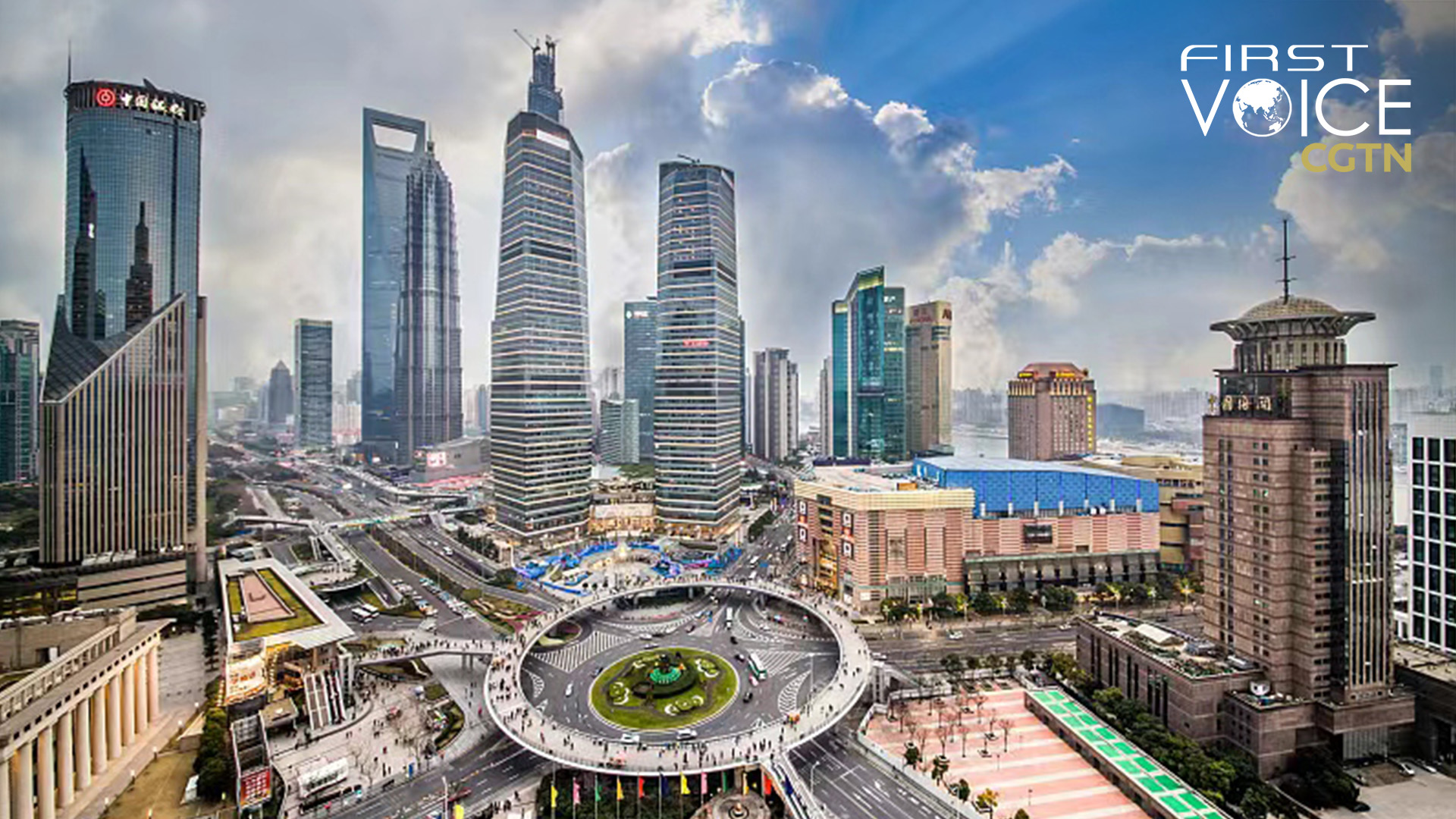
Editor's note: CGTN's First Voice provides instant commentary on breaking stories. The column clarifies emerging issues and better defines the news agenda, offering a Chinese perspective on the latest global events.
By Keith Lamb
With its excellent infrastructure and talent, China is one of the top go-to locations for foreign businesses. The German automobile manufacturer Volkswagen already has 40 plants in China and is expanding. The FDI inflow, in actual use, expanded 4.9 percent year on year to 408.45 billion yuan (about $59.2 billion) in the January-March period, according to the latest data from the Ministry of Commerce in April.
China's opening up is expanding not declining. In U.S. dollar terms China's exports surged14.8 percent in March 2023 in comparison to the year before giving credence to the IMF April prediction that China's economy is set to grow 5.2 percent in 2023.
China's economy is growing and open to foreign businesses, which are more than happy to come and invest. Consequently, for those who wish to deny China's rise, something has to be done to negate this. Recent corporate media stories describing China's use of exit bans to prevent foreign businesspeople from leaving China is one such method. It is used to create uncertainty in the foreign business community by countering the reality of China's dynamic and welcoming market with a hackneyed stereotype of a socialist state that imposes "political control."
Before I continue, "political control," or to be more exact, when it comes to markets, "government participation" is actually unavoidable, it exists in both the West and China. The key is who is this participation or management over the market for? In the West, government control ensures that natural monopolies, such as basic infrastructure, are turned into fiefdoms for private capital. Private banking, with the governments in their palms, is able to ensure the needs of the elite over the masses.
In contrast, China's huge socialist market economy maintains control of the leading heights of the economy, including natural monopolies which can then be used for the public good. Industries are disciplined so that monopolies don't ensue. The good of society comes above the needs of the wealthy and banking is overwhelmingly in public control and able to issue finance as a public good.
Ironically, it is these policies which make China's model more dynamic than Western capital. Intense but directed market competition has given rise to successful apps like TikTok. First rate public infrastructure reduces the costs for businesses. An emphasis on limiting the harmful aspects of capital, such as computer game addiction, lays the foundation for creating the talent that foreign capital craves, leading them to come to China.

A foreign job hunter communicates with an employer during a job fair in Haikou, south China's Hainan Province, December 18, 2019. [Photo/Xinhua]
Despite China's business edge, stories of businesspeople being required to stay in China, by being served an exit ban, might lead to caution. However, the truth of the matter is that those being served an exit ban represent the tip of a needle in a giant haystack.
Figures from GoodWill Business Management Agency show that by the end of 2020, there were 1,040,480 foreign companies registered in the Chinese mainland.In contrast, the news reports, which suggest a wave of exit bans being placed on foreign businesspeople, use figures from an academic paper that state that roughly 40 foreign businesspeople had been subjected to exit bans in China between 1995 and 2019.
This paltry amount is hardly newsworthy considering the size of the foreign business community in China. Furthermore, the academic paper states that "in the business-related cases, Chinese authorities generally appeared to follow applicable exit ban laws and application processes, thereby pushing back on the narrative that local norms and a culture of ignoring the law trump the legal mandates issued from Beijing."
Though the risk of being struck by lightning is more probable than an exit ban being served, when lightning does strike, responsible foreign businesspeople involved in a serious civil dispute or whose companies break Chinese laws are required to stay in China – they do not have extraterritorial privileges. Restriction of movement is a global norm when it comes to serious cases where those involved are likely to flee abroad to escape justice.
Behind these media reports scaring the foreign business community is a recent report on exit bans by the foreign NGO Safeguard Defenders. While financing is not apparent now in its previous guise, under the name the Chinese Urgent Action Working Group, it received funding from the National Endowment for Democracy, which is Washington's soft power regime change arm.
As such, the recent reports on China's businesspeople exit bans work within a wider symphony whose intended crescendo aims to bring down not only China but other developing socialist states such as Laos and Vietnam which Safeguard Defenders concentrate on.
Safeguard Defenders claims to be working for the individual against governments. However, the contradiction is that big government in the form of the U.S. and its monopolies is determining this agenda. This in turn justifies relevant laws to combat outside interference. At best contradictions amongst the people are used to serve hegemonic interests, at worst a false impression is constructed that feeds into an anti-communist narrative.
This contradiction is prominently highlighted by Safeguard Defenders' criticism of Facebook "succumbing" to Vietnam's request to censor posts deemed "anti-state" which considering the international climate is likely reasonable. Of course, in the West one would be "cancelled" for much less.
This First Voice article is written by CGTN Special Commentator Keith Lamb, an independent international relations analyst who focuses on China's socialist development and global inequality.

 中文
中文



